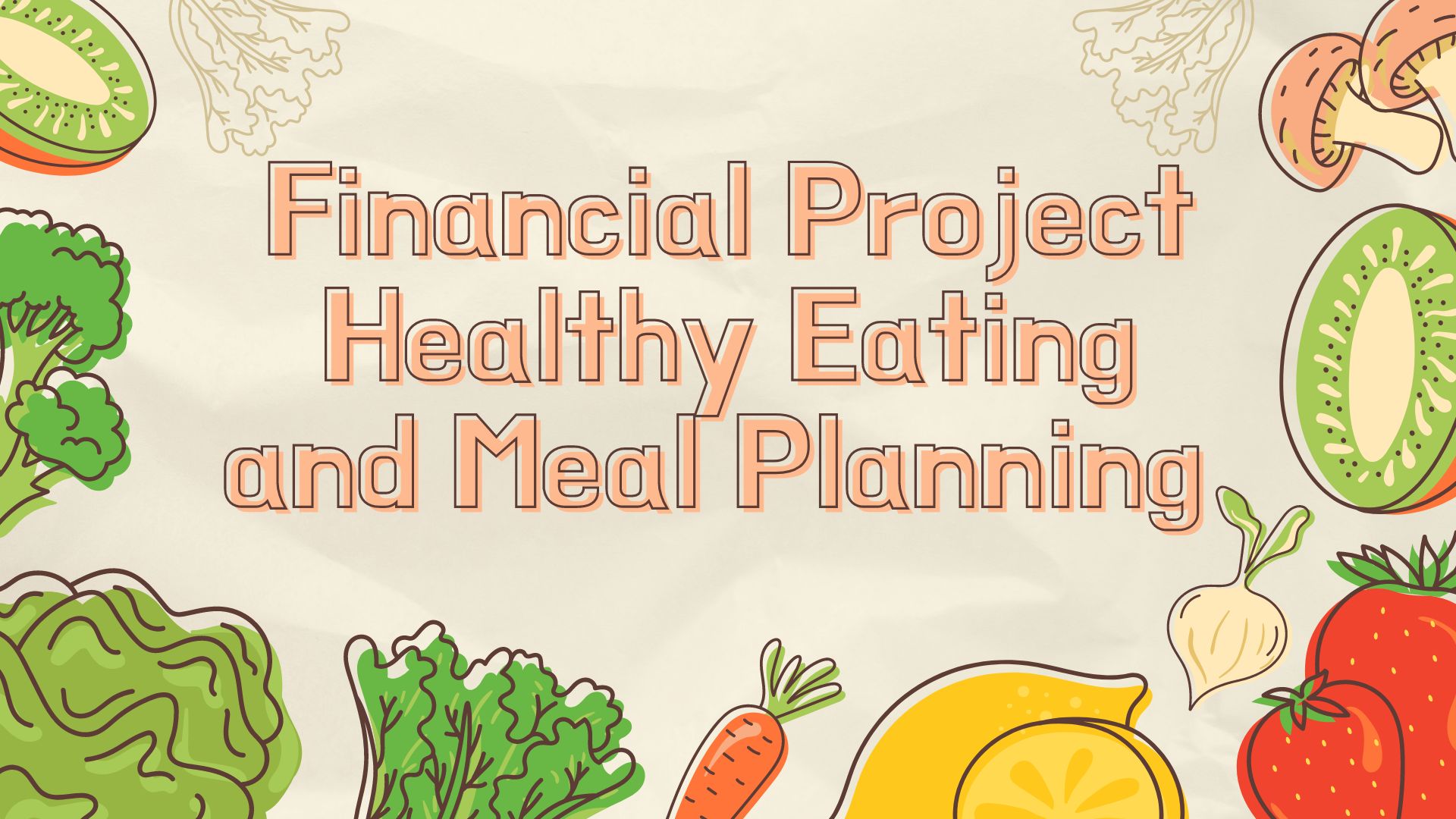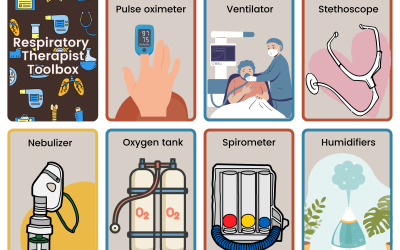Overview
In this activity students will review Canada’s Food Guide recommendations for meal planning and plan 3 days of healthy eating. They will build their meal plan while including aspects of diet that can have an impact on their mental health. Their meal plan will include breakfast, lunch, supper, and a snack for each day.
After planning their meals students will explore online grocery services and weekly flyers to explore the financial components of healthy eating and budgeting. Through this activity students will be learning about healthy eating habits and financial literacy which are life skills that will serve them well as they continue to grow up.
Healthy Eating and Mental Health
The foods you eat can have an impact on many aspects of your health. Research has shown that there is a relationship between healthy eating, improved mental health and quality of life, and decreased incidence of depressive symptoms and episodes. There are different aspects of healthy eating that this relationship applies to, such as:
- High consumption of vegetables and fruits (Firth et al., 2020; Glabska et al., 2020; Guzek et al., 2020)
- Following the Mediterranean dietary pattern (Firth et al., 2020; Francis et al., 2019; O’Neil et al., 2014; Parletta et al., 2019; Saghafian et al., 2018). This refers to a high consumption of fruits, vegetables, nuts, and legumes; moderate consumption of poultry, eggs, and dairy products, and occasional consumption of red meat.
- Inclusion of whole grain food products (Jacka et al., 2017)
- Decreased inclusion of added sugars and sweeteners, food high in saturated fats, and refined carbohydrates (Jacka et al., 2017; O’Neil et al., 2014)
These research findings show that the importance of the food you choose to consume daily can have impact on your day-to-day life. For this reason, it is important to consider how small dietary changes could be applied to your diet, and to learn about tip and tricks to assist with having healthy eating habits.
NB Curriculum Outcomes
Personal Wellness 6-8
Strand: Wellness – Big Idea: Helpful and Harmful Choices
Personal Wellness 9
Strand: Wellness – Big Idea: Helpful and Harmful Choices
What you’ll need
- Personal device (Phone, computer or tablet)
- 3 Day Meal Plan – 1 copy per student
- Grocery List – 1 copy per students
- Budget Sheet – 1 copy per student
- Recommended Budget Percentages – 1 copy per student
Instructions
Part 1: Grocery Planning and Costs
- Review Canada’s Food Guide Plan What You Eat (Plan what you eat – Canada’s Food Guide) Discuss with your students the benefits listed on this website about planning your meals. Consider how these benefits can also impact choosing foods that support your mental health and overall health. Have students specifically review the How to make a meal plan and stick to it section of the website.
- Pass out the 3 Day Meal Plan to each student. Have students consider the research surrounding mental health and fill out the sheet for what they believe healthy eating could look like for them.
- Pass out the Grocery List to each student. Have them fill out the grocery list with each ingredient they require for their meal plan.
- Pass out the Grocery Budget sheet to each student. Have them go online to determine how much their 3 Day Meal Plan would cost to purchase. Students can build their grocery list online through Atlantic Superstore, Sobeys, Walmart or other online shopping services. Students can also look at online grocery flyers to see if there are sales on their items and to get their groceries less expensive if they make stops at different locations.
Atlantic Superstore:
Online Shopping: Atlantic Superstore Supermarket | Grocery shop online
Flyer: Weekly Flyer | Atlantic Superstore
Walmart:
Online Grocery Shopping: https://www.walmart.ca/cp/grocery
Flyer: Walmart Weekly Flyer | Walmart Canada
Sobeys
Online Grocery Shopping: Voilà | Online Grocery Delivery – Offer terms and conditions | Conditions generales (voila.ca)
Flyer: Voilà | Online Grocery Delivery – All Promotions (voila.ca)
Part 2: Budgeting
- After student have a total amount for the expenses of their groceries, have them consider how much it would cost them if they consumed this diet for a month. Example: Grocery bill: ($30 / 3 days) x (30 days) = $300 per month
- Have students investigate a job they’re interested in pursuing, and research what an average salary for that role would be. Work out what the monthly salary would be. Students can use the following websites for conducting research: myBlueprint.ca | Home, Home | NBjobs.ca, Search for Jobs on CareerBeacon | Find a Job You Love
- Middle school Application:Take your yearly salary and divide it by 12 to discover your monthly salary.High school Application:Take it a step further and calculate deductions. Calculate your net vs gross pay considering deductions. See Income Visualizer Learning Activity on the COE Entrepreneurship website (Income Visualizer – An App for Middle and High School | Centre of Excellence for Entrepreneurship (centresofexcellencenb.ca))
- Pass out the Recommended Budget Percentages. Have students determine their budget for each of the categories on the Recommended Budget Percentages (this number will be a range).
- Determine if the budget they’ve determined for groceries aligns with the costs of their 3 Day Meal Plan. If it doesn’t, what changes could be made to align with the budget more closely? Or what different category from the budget would you take from to allow for your food costs?
Part 3: Wrap Up Discussion
Have students consider the expenses associated with eating healthy food. and have a group discussion as a class.
- Discuss methods for preventing food waste.
- Discuss methods for how to lower food costs.
- Consider buying your groceries with a meal plan and grocery list versus without. Which do you think would result in more expensive groceries?
Consider purchasing groceries using an online service versus going to the store in person. Which do you think would result in more expensive groceries?
Career Connections
Discuss:
Was it easy to fit your costs within your budget? How would this change depending on which career you selected to consider?
After completing this activity how important do you feel it is to budget?
Reflection Activity
Please see the attached PDF for several choices on how you and your learners can reflect upon today’s activity.
Global Competencies
- Critical thinking and Problem-solving
- Innovation, creativity, and Entrepreneurship
- Self Awareness and Self-management
- Sustainability and Global Citizenship
Resources
Firth, J., Gangwisch, J. E., Borsini, A., Wootton, R. E., & Mayer, E. A. (2020). Food and mood: How do diet and nutrition affect mental wellbeing? BMJ. https://doi.org/10.1136/bmj.m4269
Francis, H. M., Stevenson, R. J., Chambers, J. R., Gupta, D., Newey, B., & Lim, C. K. (2019). A brief diet intervention can reduce symptoms of depression in young adults – a randomised controlled trial. PLOS ONE, 14(10). https://doi.org/10.1371/journal.pone.0222768
Głąbska, D., Guzek, D., Groele, B., & Gutkowska, K. (2020). Fruit and vegetables intake in adolescents and mental health: a systematic review. Roczniki Panstwowego Zakladu Higieny, 71(1), 15–25. https://doi.org/10.32394/rpzh.2019.0097
Guzek, D., Głąbska, D., Groele, B., & Gutkowska, K. (2020). Role of fruit and vegetables for the mental health of children: a systematic review. Roczniki Panstwowego Zakladu Higieny, 71(1), 5–13. https://doi.org/10.32394/rpzh.2019.0096
Jacka, F. N., O’Neil, A., Opie, R., Itsiopoulos, C., Cotton, S., Mohebbi, M., Castle, D., Dash, S., Mihalopoulos, C., Chatterton, M. L., Brazionis, L., Dean, O. M., Hodge, A. M., & Berk, M. (2017). A randomised controlled trial of dietary improvement for adults with major depression (the ‘SMILES’ trial). BMC medicine, 15(1), 23. https://doi.org/10.1186/s12916-017-0791-y
O’Neil, A., Quirk, S. E., Housden, S., Brennan, S. L., Williams, L. J., Pasco, J. A., Berk, M., & Jacka, F. N. (2014). Relationship between diet and mental health in children and adolescents: a systematic review. American journal of public health, 104(10), e31–e42. https://doi.org/10.2105/AJPH.2014.302110
Parletta, N., Zarnowiecki, D., Cho, J., Wilson, A., Bogomolova, S., Villani, A., Itsiopoulos, C., Niyonsenga, T., Blunden, S., Meyer, B., Segal, L., Baune, B. T., & O’Dea, K. (2019). A Mediterranean-style dietary intervention supplemented with fish oil improves diet quality and mental health in people with depression: A randomized controlled trial (HELFIMED). Nutritional neuroscience, 22(7), 474–487. https://doi.org/10.1080/1028415X.2017.1411320
Saghafian, F., Malmir, H., Saneei, P., Milajerdi, A., Larijani, B., & Esmaillzadeh, A. (2018). Fruit and vegetable consumption and risk of depression: accumulative evidence from an updated systematic review and meta-analysis of epidemiological studies. The British journal of nutrition, 119(10), 1087–1101. https://doi.org/10.1017/S0007114518000697




